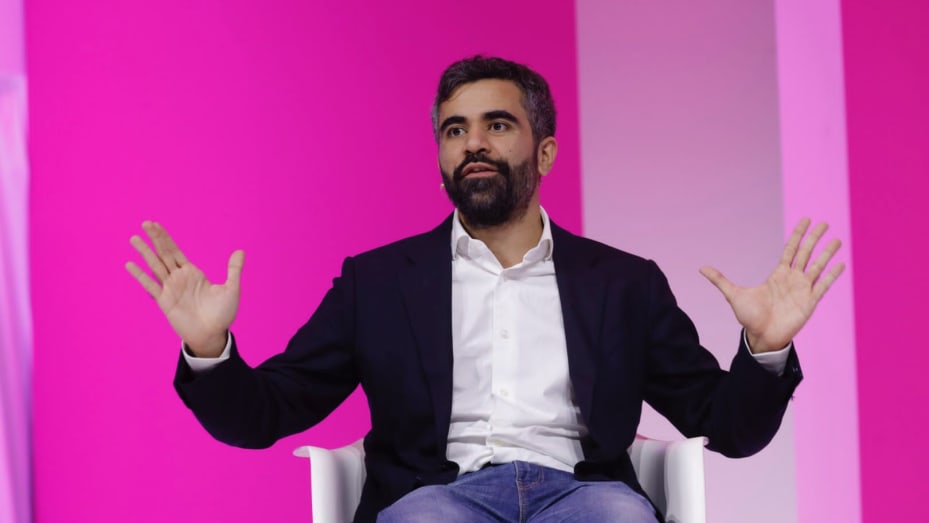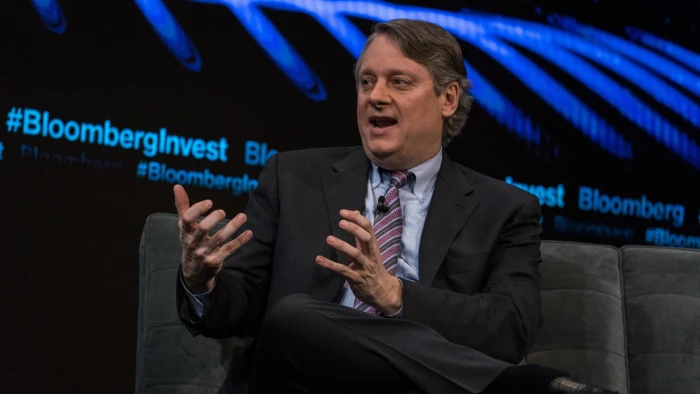Important Points
- For £76.5 million ($97.1 million), Improbable sold The Multiplayer Group, a multiplayer gaming services company it acquired in 2019, to Keywords Studios.
- The CEO of Improbable, Herman Narula, told CNBC that the deal is a component of the company’s “venture builder” strategy, which entails investing in or acquiring teams with the intention of growing or spinning them out.
- After a string of setbacks at the company, Improbable, one of its many well-known gaming bets, has struck an agreement to sell MPG.
- In 2024, centralised experiences like Roblox and Fortnite will be abandoned in favour of decentralised, “Web3” alternatives, according to Narula, who predicted the emergence of a “tale of two metaverses.”

The London-listed video game developer Keywords Studios purchased one of Improbable’s major gaming endeavours for £76.5 million ($97.1 million) from the Metaverse corporation.
A representative for Improbable informed, that the company finalised the sale of The Multiplayer Group (MPG), a provider of multiplayer gaming services, to Keywords on Sunday.
Ireland-based Keywords is the owner of over 70 studios across the globe, including those in Los Angeles, France, Brazil, Mexico, and Spain. The company creates games primarily for other creators.
As of now, keywords’ shares have decreased by about 49%. It has recently been on an acquisition binge, allocating 91.9 million euros ($100 million) for fresh acquisitions.
As a result, as of June 30, the company had €11.4 million in net debt as opposed to a net cash position at the end of the previous year.
In its half-year results for the period ending June 30, Keywords also declared earnings per share of 18.48 euro cents, a 40% decrease from the previous year.
According to Keywords, the acquisition of MPG was mainly financed by cash and its current revolving credit line, and it would result in double-digit revenue growth by 2024.
Keywords anticipates that in the first full year following the acquisition, the transaction will increase earnings per share.
MPG, which was established in 2018, is well-known for its behind-the-scenes contributions to video games including Medal of Honour: Above and Beyond and Fallout 76.
The deal was a part of Improbable’s “venture builder” strategy, according to co-founder and CEO Herman Narula, who told CNBC that the company invests in or buys gaming and metaverse-related teams with the intention of growing or spinning them off later.
The idea was that if we have a solid understanding of metaverses and multiplayer, perhaps we can identify instances in which we can introduce items into the den that will work well for us. And then, in an exclusive interview he said to either maintain expanding them or possibly spin them out at the appropriate moment, if that makes sense.
“It became evident that collaborating with MPG and hiring them internally would have allowed us to gain enormous knowledge and assisted in their development.”
After acquiring MPG in 2019, Improbable has experienced significant growth. There are now 360 employees, a six-fold increase in just four years.
Furthermore, MPG’s worth has increased to £76.5 million from Improbable’s initial £30 million purchase price, more than doubling.
While the action raises the possibility of reducing Improbable’s gaming-related investments, Narula denied that a sale of MPG signifies a retreat from the industry in any way.
“We’re not stopping our business with gaming companies, nor are we selling any technology in any way,” Narula stated. “MPG offers a highly specialised, niche service.”
Recently, a number of games that were based on the original SpatialOS technology developed by Improbable have been cancelled.
These include the console version of Midwinter Entertainment’s Scavengers, the open-world game Nostos, published by NetEase, and Worlds Adrift, developed by Bossa Studios.
Behaviour Interactive purchased Midwinter earlier this year from Improbable.
The main offering from Improbable is now its technological platform, Morpheus. Massively multiplayer online games are supported by Morpheus.
With its Morpheus technology, Improbable has brought new experiences to life, such as virtual Major League Baseball games and the “Otherside” metaverse created in collaboration with blockchain startup Yuga Labs.
Trying to sell investors on ‘metaverse’
Improbable is a British company that was founded in 2012 with the goal of creating a network of metaverses. Improbable opened up access to its metaverse creation suite, MSquared, to developers in June.
MSquared comes with an open-source metaverse markup language, its own network, and a tech stack.
After a string of setbacks at the company, Improbable, one of its many well-known gaming bets, has struck an agreement to sell MPG.
Improbable has experienced significant cost savings.
The company, which was valued at $3.4 billion in October 2022, let go of dozens of employees towards the end of the previous year following significant funding from Andreessen Horowitz and SoftBank.
However, declining investor excitement for the field has reduced the values of once buzzy metaverse and Web3-related firms this year and last.
More recently, Improbable has positioned itself as AI-enabled, claiming that this has contributed to cost savings. In 2022, the company’s losses were reduced by 85% to £19 million.
‘Tale of two metaverses’
The original goal of Improbable was to create expansive computer simulations for use in gaming and defence.
But these days, its primary concentration is on its metaverse investments.
In September, Improbable announced the sale of its defence division to Noia Capital, ending the company’s losing endeavour.
According to Narula, a “tale of two metaverses” is anticipated to be revealed in 2019. Decentralised “Web3” metaverses will replace centralised gaming experiences like Roblox and Fortnite, according to Narula.
The term “Web3” describes the concept of a more open, decentralised online that is not dominated by a few large, powerful tech corporations like Amazon and Meta.
One important piece of technology is blockchain.
In the end, Roblox and Fortnite are just two distinct game modes created by users and brands. However, Narula stated, “people are unable to create companies that they own or that can engage in appropriate commercial activity.”
“Building a network of sovereign metaverses is the main goal of the other branch of the metaverse, which is fueled in part by Web3 and in part by businesses like ours.”
Because of the enormous expenses and technological constraints associated with commercialising the technology, analysts have voiced doubts about Improbable’s capacity to do so.
As for whether the “virtual” hype will ever equal the reality, that is still up for debate, according to Greg Martin, co-founder and managing director of Rainmaker Securities, a private market trading firm, who spoke with us.
In the future, Narula expressed his hope to enlist a large number of partners for MSquared.
The company Improbable, which specialises in organising massive metaverse events, organised 30 of these events in 2023 compared to just three the previous year. By 2024, the business wants to increase that figure to 300.










